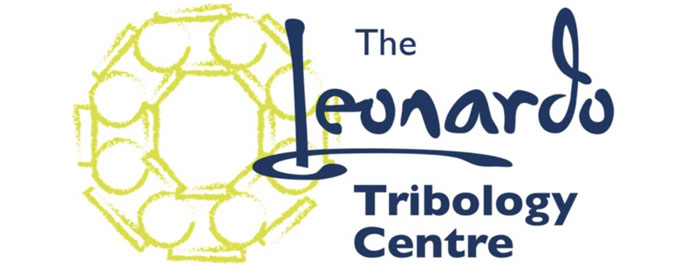Since its inception the Jost Foundation has already contributed more than £4m to countless good causes and projects.
Here are a few of the more notable ventures in which we have engaged over the years.
Royal National Institute for Deaf People (2019-2021)
The Foundation funds the “Jost Studentship” which is administered by the Royal National Institute for Deaf People (RNID). Under this initiative, the Foundation will sponsor one of the best and brightest PhD students engaged in hearing-related research.

Chadsgrove School and Specialist Sports College (2002 to 2016)
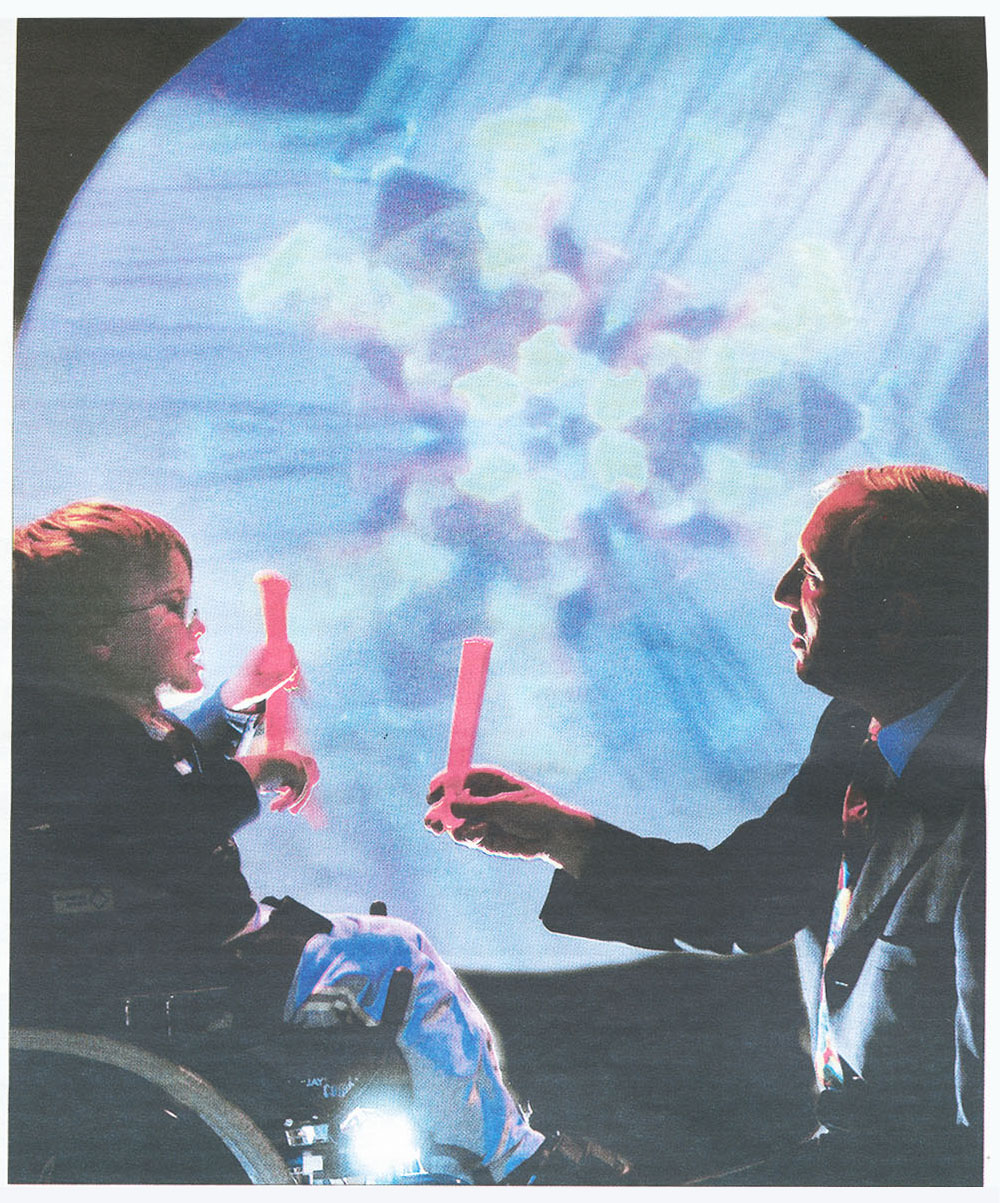
Many years after the Millennium Dome closed, it’s hard to recall the fuss that once surrounded the country’s most expensive visitor attraction. Amongst its visitors that year were the children of Chadsgrove, a special school in Worcestershire for children with varying degrees of physical disability. The moment that made their trip so remarkable occurred in the Dome’s Playzone, where they came across the Kaleidoscope, a giant version of the child’s toy, with segmented shapes and colours projected on to the wall of a darkened room. The curious thing about the Kaleidoscope, as the children discovered, was that every time they moved, the image changed, and a little piece of music played. If they looked closer, they could see that the tessellated shapes were actually little pieces of them: their faces, arms and legs, dancing around the screen in syncopated patterns. The Kaleidoscope, a one-off experimental entertainment that could conceivably have ended up on the scrapheap was instead purchased by the Jost Foundation from Kenji Mase, the Japan-based designer who had programmed the unique software behind it. In the Spring of 2001, the Foundation was able to coordinate its installation in the school’s multisensory room as part of the testing ground for one of the most exciting technological innovations in special education.
There has since followed a long association with the school, its staff and pupils.
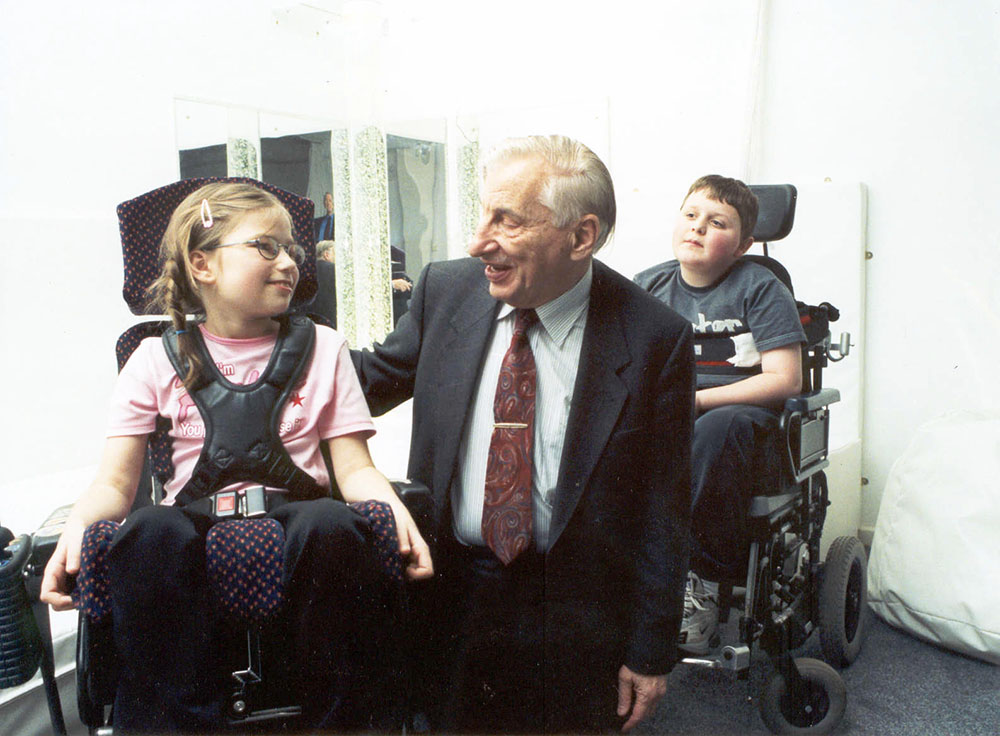
Alzheimer’s Research UK (2021-2023)
The Foundation agreed to fund a “Margaret Jost Fellowship” administered by Alzheimer’s Research UK. Under this initiative, the Foundation will sponsor a Clinical Research Training programme conducted at the University of Bristol aiming to measure and improve sleep in people with prodromal and mild Alzheimer’s disease.

Science and Technology Foundation Trust (2002 onwards)
The Foundation is a keen and longstanding supporter of this neutral platform for the debate of policy issues that have a science, technology or medical element.

University of Leeds (2003)
In 2003 the Foundation assisted in the establishment of a new Academic Chair within the University of Leeds’ Institute of Tribotechnology known as the Jost Chair of Engineering Tribology.
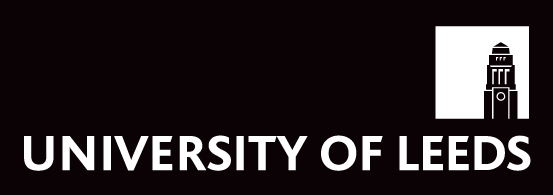
University of Central Lancashire (2003 – 2006)
The Charity helped to fund the Jost Institute for Tribotechnology within the University of Central Lancashire. This was established to provide a centre of excellence research and teaching and within the area of tribotechnology and provides executive support for the International Tribology Council (ITC) which facilitates communication on an international basis and its research in association with various partners, such as the European Space Tribology Laboratory.

NF2 BioSolutions UK (2022 – 2024)
The Foundation has agreed to contribute towards research into repurposing existing anti-inflammatory and immune-modulating drugs to benefit patients with Neurofibromatosis type 2 (NF2). The programme encompasses two PhD students from the University of Manchester.
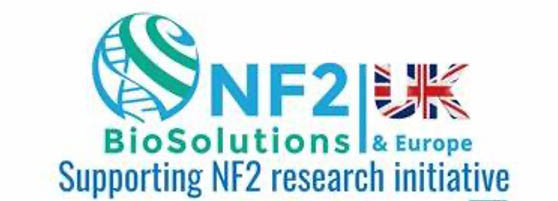
Independent Public Enquiry on NHS supplied contaminated Blood products (2008 to 2012)
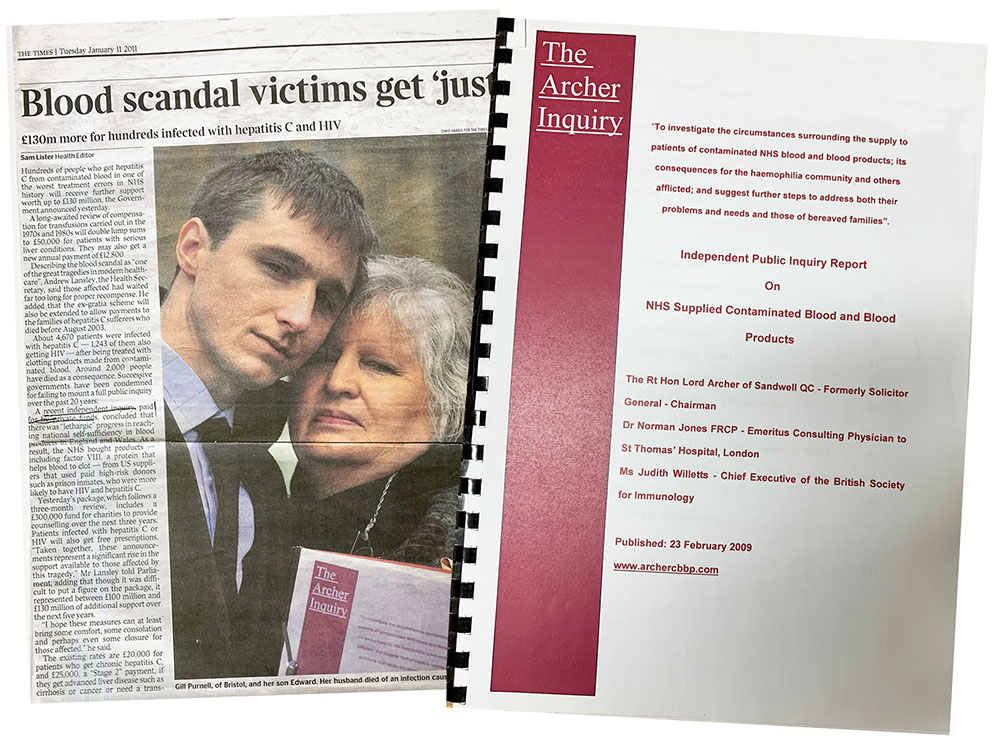
The Jost Foundation funded an independent public enquiry (known as the Archer Enquiry”) into how 1,757 haemophiliacs had been given blood infected with hepatitis C or HIV. In his report Lord Archer was highly critical of successive governments’ slowness to react. The findings culminated in the Contaminated Blood (Support for Infected and Bereaved Persons) Bill, which received support from MPs from all parties but regrettably this was ultimately set aside due to insufficient time for it to be debated before being enacted. Nonetheless in the final reckoning the Government apologised and paid substantial compensation to those victims who had contracted either hepatitis “C” or HIV as result of being treated with clotting products made from contaminated blood.
University of Sheffield (2009 – 2011)
The Charity funded the University of Sheffield’s Centre of Tribology and Surface Engineering now known as the Leonardo Tribology Centre.
